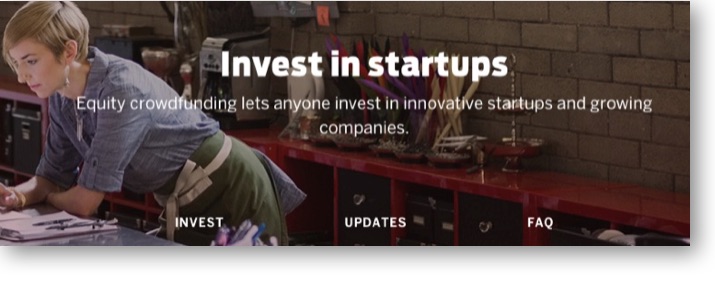The rewards-based crowdfunding platform Indiegogo has partnered with the equity crowdfunding website, MicroVentures, to provide Indiegogo backers the possibility to make equity investments in certain projects. While available, it’s not for every startup or investor.
“Unlike rewards-based crowdfunding, with equity crowdfunding, individuals receive company shares, not just perks, in exchange for their equity investment. Not only can businesses gain the crucial help they need from a broader pool of funders—but investors can support business they believe in, and can even benefit financially if a company goes on to greater heights,” explained Slava Rubin, chief business officer, who announced the program on Indiegogo’s blog yesterday (November 15, 2016).
As SmallBusiness.com has covered over the past three years, equity crowdfunding is possible because of the equity crowdfunding rules passed by the Securities and Exchange Commission (SEC) as part of the 2012 JOBS Act. The legislation allows anyone the opportunity to invest in companies online.
Previously, only a select group of accredited investors that met a certain wealth threshold could invest in early-stage private companies.
“Investing in startups means you may own a piece of the company and are along for the ride, with all the ups and downs. You may not have a seat at the boardroom table, but you can help a great idea come to life,” said Rubin.
The costs of running an equity-raising campaign
While the option is available to Indiego users, don’t expect a mad dash for most project fund-raisers.
According to the NYTimes.com, here are some of the caveats for such an approach:
- The cost of running an equity campaign is very different from a rewards-based campaign. For example, it is free to set up a rewards-based campaign. The platform is paid 5% of the revenues generated for a successful campaign.
- For equity campaigns, creators will need to spend about $7,000 on compliance and regulatory costs before a campaign is permitted to go live.
- The site will then take a cash fee of 7 percent on any funds raised, plus an additional 2 percent in stock.
- Investors will pay a $7 processing fee or 2 percent of their investment, whichever is higher.
Investor, beware
While Indiegogo, MicroVentures and the 2012 Jobs Act make the equity funding option possible, it won’t be for everyone. Before making any investment, know the risks. Startup investing is high risk. As we say often, always consult your trusted advisors when making decisions about money or legal matters.

